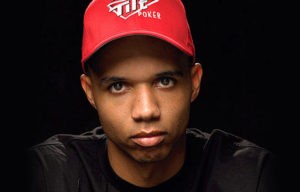John Talliday-
A professional US poker player, Phil Ivy, has lost his appeal against a London casino over a £7.7m due to his use of “edge-sorting”.
Edge sorting is a gambling technique that involves exploiting design irregularities on the backs of cards.
Poker player Phil Ivey challenged a 2014 high court decision to dismiss his case against Genting Casinos UK-owners of a Crockfords Club in Mayfair. After successfully playing a version of baccarat known as Punto Banco at the casino two years earlier, the poker player was told his winnings would be wired to him. After he left for his home in Las Vegas, the gigantic win never arrived. Only his £1m stake money was returned to him.
Gentings Casino
Gentings Casino said edge-sorting was not a legitimate strategy and therefore claimed Mr.Ivey’s £7m win to be illegitimate. The strategy allows players to predict whether a card may be high or low – and therefore beneficial to their hand – by finding tiny irregularities in the back of each card. The poker player from America is a big gambler, who frequents casinos in the U.S and abroad whenever he travels away.
Poker Player
The poker player was said by Gentings Casinos to have cheated by undermining the essence of the game of baccarat,making his gaming contract void. With scores of Gentings Casinos in the U.K, they are a multi-million pounds gambling organization. Thousands of people go through Gentings casinos daily, gambling thousands of pounds altogether, with post punters losing more money in gambling than they make in return. Many rich punters gamble away hundreds of pounds each daily, some coming up trumps, and others, losers. Poker is popular among casino players, and most poker players finish being content with the the fairness of the game.
Court Of Appeal
However, the court of appeal, Lady Justice Arden said it was common ground that there was an implied term in the contract not to cheat and the meaning of cheating for that purpose was to be determined in accordance with the Gambling Act 2005.
“In my judgment, this section provides that a party may cheat within the meaning of this section without dishonesty or intention to deceive: depending on the circumstances it may be enough that he simply interferes with the process of the game,” Arden said. “On that basis, the fact that the appellant did not regard himself as cheating is not determinative.”
In her summary,Judge Arden ruled that the actions of poker player Ivey and another gambler, Cheung Yin Sun, wrongly interfered with the process by which Crockfords played the game. “It is for the court to determine whether the interference was of such a quality as to constitute cheating”, she said, concluding that it did.
Phil Ivey Affects Odds
“In particular the actions which Mr Ivey took or caused to be taken had a substantial effect on the odds in the game and Crockfords were not aware of this at the relevant time. In these circumstances, no lower standard applied in this case because Mr Ivey was an advantage player who was in an adversarial position with the casino.”
Ivey said he only exploited Crockfords’ failures to take proper steps to protect themselves against a player of his ability. “I was upset as I had played an honest game and won fairly. My integrity is infinitely more important to me than a big win,” he said.
Arden and Lord Justice Tomlinson dismissed the appeal but the third member of the panel, Lady Justice Sharp, allowed it, saying that the trial judge, Mr Justice Mitting, was wrong to construe the issue of “cheat” in the way that he did.
Mitting had said the fact that Ivey was genuinely convinced he did not cheat and the practice commanded considerable support from others was not determinative of whether it amounted to cheating. He added that Ivey had gained himself an advantage and did so by using a croupier as his innocent agent or tool.
In the judge’s view, this was “cheating for the purpose of civil law”.
Gentings Casino
After the ruling, Gentings UK president and chief operating officer, Paul Willcock, said the company was “obviously very happy with the decision”.
But Ivey said the decision made no sense to him. “The trial judge said that I was not dishonest and the three appeal judges agreed, but somehow the decision has gone against me. Can someone tell me how you can have honest cheating?” he said.
Defending Ivy, was his lawyer, Matthew Dowd, who said: “The court of appeal’s decision leaves the law totally unclear as to what constitutes cheating at gambling.
“Four judges have looked at this issue now and none of them have been able to agree on the correct interpretation of section 42 of the Gambling Act.
“It is essential that the law is clarified and, in light of today’s decision, we are seeking permission to appeal to the supreme court.”
Ivy was last month also engulfed in a legal battle over edge-sorting with an Atlantic City casino. Last month, a US district judge ruled that while the poker player didn’t cheat, they were liable for breach of contract when they used the technique to win $9.6m. This poker player appears to be out of luck when it comes to court battles.


